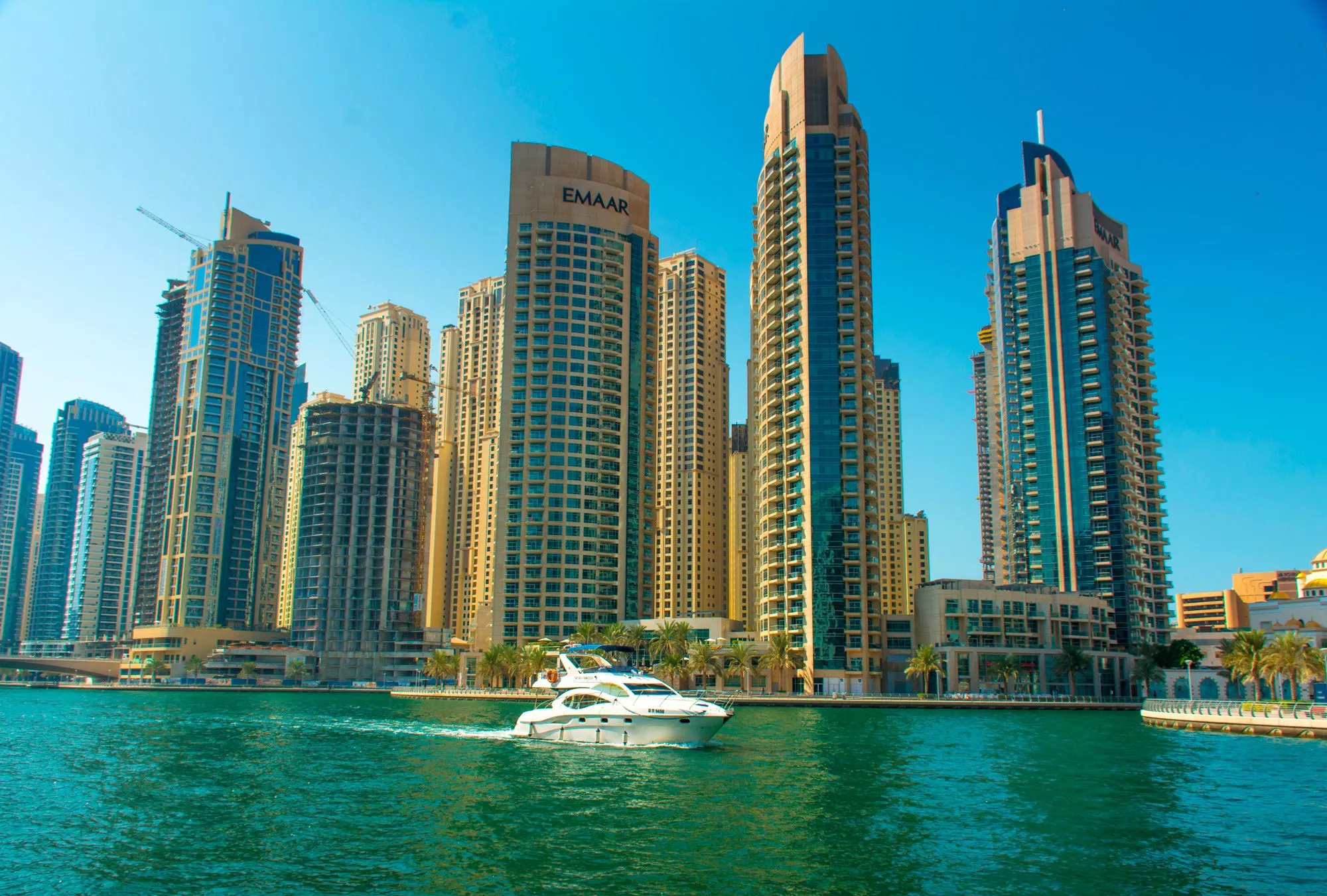Real Estate Regulatory Agency in Dubai
Welcome to the vibrant and ever-evolving real estate landscape of Dubai, where the Real Estate Regulatory Agency (RERA) plays a pivotal role in ensuring transparency, fairness, and accountability. If you're curious about this regulatory body and its impact on Dubai's real estate market, you've come to the right place! In this blog post, we will explore the history, responsibilities, regulations implemented by RERA, as well as the benefits it brings to buyers, sellers, and developers alike. So fasten your seatbelts as we embark on an exciting journey through the world of RERA in Dubai!
What is the RERA in Dubai?
RERA stands for the Real Estate Regulatory Agency, and it is the regulatory arm of the Dubai Land Department in the Emirate of Dubai, United Arab Emirates (UAE). RERA was established in 2007 with the aim of regulating and overseeing the real estate sector in Dubai, promoting transparency, protecting the rights of property owners, and ensuring the overall stability and sustainability of the real- estate regulation and development of market.
One of the key functions of RERA is to implement and enforce regulations that govern various aspects of the real estate industry, including property development, sales, leasing, and property management. RERA plays a crucial role in the regulation and development act, setting standards for real estate transactions, licensing real estate professionals, and resolving disputes between parties involved in real estate transactions.
RERA is also responsible for the implementation of the Real Estate Regulatory Law (Law No. 8 of 2007), which outlines the rights and responsibilities of various stakeholders in the real estate market. The agency has introduced several initiatives and regulations to enhance the transparency and credibility of the real estate sector in Dubai.
It's important to note that regulations and agencies in the UAE, including RERA, may evolve, and it's advisable to check the latest updates or consult with legal professionals for the most current information.

History and Evolution of RERA
The Real Estate Regulatory Agency in Dubai has played a crucial role in shaping and regulating the real estate market. Established in 2007, RERA was created to ensure transparency, accountability, and fairness within the industry.
Over the years, RERA has evolved to meet the changing needs of Dubai's real estate market. It has implemented numerous regulations and laws to protect buyers, sellers, and developers alike. One notable milestone in RERA's history was the introduction of Law No. 27 in 2007, which established clear guidelines for property ownership and registration procedures.
As Dubai experienced rapid growth and development, RERA adapted its policies accordingly. In recent years, it introduced new initiatives such as Escrow accounts to safeguard buyer investments and prevent fraud. Furthermore, RERA launched an online platform that provides easy access to information on licensed brokers, projects, and transactions.
Through its continuous efforts to enhance transparency and trustworthiness within the real estate sector,RERA has become a trusted authority both locally and internationally.
The agency's commitment towards creating a sustainable environment for investors is reflected through its enforcement of strict regulations aimed at minimizing risks associated with property transactions.
The history of RERA showcases its dedication towards protecting stakeholders' interests while promoting growth within Dubai's real estate market.
Its evolution over time demonstrates how it has remained adaptive to changes,to address emerging challenges,and meet industry demands.

Key Roles and Responsibilities of RERA
The Real Estate Regulatory Agency plays a crucial role in regulating and overseeing the real estate market in Dubai. Its primary responsibility is to ensure transparency, fairness, and accountability within the industry.
One of the key roles of RERA is to regulate the registration and licensing of all real estate professionals operating in Dubai. This includes developers, brokers, and property management companies. By implementing strict regulations for obtaining licenses, RERA aims to maintain high professional standards within the industry.
RERA also has the responsibility to monitor and enforce compliance with laws related to property sales and leasing. This includes ensuring that contracts are fair and transparent, protecting buyers from fraudulent practices, and resolving disputes between parties involved in real estate transactions.
RERA is responsible for maintaining a comprehensive database of all registered properties in Dubai. This database provides valuable information for potential buyers or tenants regarding property ownership records, title deeds, mortgages, and any legal issues associated with a particular property.
Another important role of RERA is to promote investor confidence by conducting regular inspections of construction sites to ensure adherence to building codes and safety standards. This helps protect both investors home buyers' interests as well as public safety.
RERA acts as an intermediary between buyers/sellers/developers by providing dispute resolution services through its specialized committees. These committees aim to resolve conflicts efficiently while considering all relevant legal aspects.

The Importance of RERA in Dubai's Real Estate Market
The Real Estate Regulatory Agency (RERA) plays a crucial role in Dubai's real estate market, ensuring transparency and safeguarding the interests of all stakeholders involved. With its establishment, RERA has brought about registration number of significant changes and improvements to the industry.
One of the key reasons why RERA is important is its role in regulating and monitoring real estate transactions. By implementing strict regulations and laws, RERA ensures that buyers are protected from fraudulent activities and unethical practices. This instills confidence in investors, both local and international, making Dubai an attractive destination for real estate investments.
RERA promotes fair competition among developers by enforcing rules related to project completion deadlines and quality standards. This helps maintain high-quality construction standards across the city, enhancing the overall reputation of Dubai's real estate market.
Another aspect where RERA brings immense value is through dispute resolution mechanisms. In case of any conflicts or disputes between buyers, sellers or developers, RERA acts as a mediator to find amicable solutions. This not only saves time but also prevents costly legal battles that can negatively impact all parties involved.
With its focus on licensing real estate professionals such as brokers and property managers, RERA ensures that only qualified individuals operate within the industry. This enhances professionalism within the sector while protecting consumers from unscrupulous agents.
It is evident that without a regulatory body like RERA overseeing Dubai's real estate market; it would lack accountability and integrity. The presence of this agency has contributed significantly to transforming Dubai into one of the most reliable destinations for property investments globally.

Regulations and Laws Implemented by RERA
The Real Estate Regulatory Agency (RERA) in Dubai plays a crucial role in regulating the real estate industry. It has implemented several regulations and laws to ensure transparency, fairness, and accountability within the sector.
One of the key regulations introduced by RERA is the requirement for developers to obtain a license before selling off-plan properties. This ensures that only reputable developers with proven track records are allowed to sell properties, protecting buyers from potential scams or fraudulent activities.
RERA also regulates property management companies, ensuring that they adhere to professional standards and provide quality services to property owners. This includes monitoring rent increases, resolving disputes between landlords and tenants, and ensuring proper maintenance of buildings.
To protect investors interests, RERA has set guidelines for escrow accounts. Developers are required to deposit funds received from buyers into these bank accounts beforehand, which can only be used for construction or project-related expenses. This prevents misuse of funds and provides assurance to buyers that their investments are secure.
RERA has established rules regarding advertising and marketing practices in the real estate industry. Developers must provide accurate information about their projects and refrain from misleading or deceptive advertisements.
These regulations implemented by RERA have significantly improved transparency in Dubai's real estate market. They promote fair competition among developers while safeguarding the interests of both buyers and sellers. By setting clear guidelines and enforcing compliance with these laws, RERA maintains a level playing field for all stakeholders involved in the real estate sector.

Benefits for Buyers, Sellers, and Developers under RERA
Buyers, sellers, and developers in Dubai's real estate market reap several benefits under the Real Estate Regulatory Agency (RERA). For buyers, RERA provides a transparent and secure environment to invest in properties. The agency ensures that all projects are registered with them before being marketed or sold. This safeguards buyers from fraudulent activities and gives them confidence in their investments.
Sellers also benefit from RERA as it regulates their activities and provides a level playing field for competition. The agency enforces rules regarding fair advertising practices, pricing policies, and quality standards. This creates trust between sellers and buyers and fosters a healthy marketplace.
Developers find great support from RERA as well. They can register their projects with the agency which enhances credibility among potential investors. RERA's regulations help streamline development processes by regarding project registration and ensuring compliance with construction guidelines, project completion timelines, and quality control measures.
Rera plays an essential role in resolving disputes between parties involved in real estate transactions through its specialized Dispute Resolution Center (DRC). This saves time, money, as well as legal complications for all stakeholders.

Challenges Faced by RERA and How it Resolves Disputes
Challenges are an inevitable part of any regulatory agency's journey, and the Real Estate Regulatory Agency (RERA) in Dubai is no exception. One of the main challenges faced by RERA is ensuring compliance with its regulations and laws within the diverse real estate market in Dubai. With numerous developers, brokers, and investors involved, it can be a daunting task to monitor every transaction.
Another challenge for RERA is resolving disputes between buyers, sellers, and developers. Disagreements over property prices, payment terms, or contract breaches can arise at any stage of a real estate deal. However, RERA has established mechanisms to address these issues efficiently.
RERA employs a variety of dispute resolution methods such as mediation and arbitration to settle conflicts quickly and fairly. Mediation allows parties to discuss their concerns with the help of a neutral third party who facilitates negotiations towards finding a mutually acceptable solution. If mediation fails or if both parties prefer arbitration instead, RERA provides access to expert arbitrators who make binding decisions based on evidence presented.
To further enhance dispute resolution processes, RERA has implemented specialized tribunals that handle specific types of cases related to real estate matters. These tribunals ensure that disputes are resolved promptly by judges knowledgeable in real estate laws.
In addition to resolving disputes through mediation and arbitration, RERA also plays an educational role by providing guidance on legal rights and obligations to all stakeholders involved in the real estate industry. This proactive approach helps prevent potential conflicts from arising in the first place.

Future Outlook for RERA
The Real Estate Regulatory Agency (RERA) has played a crucial role in shaping Dubai's real estate market, and its future outlook looks promising. As the city continues to evolve and attract investors from around the world, RERA is expected to adapt and implement new regulations to ensure transparency and stability.
One of the key areas where RERA is likely to focus on in the future is technology. With advancements such as blockchain and artificial intelligence gaining traction in various industries, RERA can leverage these tools to streamline processes, enhance security, and improve efficiency in the real estate sector.
Another aspect that RERA may prioritize is sustainability. As Dubai aims to become a global leader in sustainable development, RERA can play a vital role by implementing regulations that encourage eco-friendly practices within the real estate industry. This includes promoting energy-efficient buildings, encouraging green initiatives, and incentivizing developers who incorporate sustainable features into their projects.
As Dubai's population continues to grow rapidly, there will be an increased demand for affordable housing options. In response to this need, RERA may introduce measures or collaborate with developers to create more affordable housing solutions for both citizens and expatriates.
With globalization becoming increasingly prevalent in today's world economy, it is essential for RERA to stay updated on international best practices in real estate regulation. By benchmarking against successful models from other countries or regions, RERA can continuously improve its operations and provide even better support for buyers, sellers, and developers.

How do I file a case in UP RERA?
Here's a general guideline on how you might proceed:
Visit the UP RERA Website: Start by visiting the official website of UP RERA. You can usually find important information, forms, and guidelines on the website.
Understand the Complaint Procedure: Review the complaint filing procedure outlined on the UP RERA website. Understand the eligibility criteria, required documents, and the specific process for filing a complaint.
Prepare Necessary Documents: Gather all relevant documents related to your complaint. This may include the agreement with the builder, proof of payment, correspondence with the builder, and any other documents that support your case.
Online Complaint Registration: UP RERA typically provides an online portal for registering complaints. Fill out the complaint form with accurate and detailed information. Upload the necessary documents as per the guidelines provided.
Payment of Fees: Be aware of any fees associated with filing a complaint. UP RERA may have a prescribed fee for registering complaints. Ensure that you make the necessary payment as per the instructions.
Track Complaint Status: After submitting your complaint, UP RERA will provide you with a unique complaint number. Use this number to track the status of your complaint through the online portal.
Mediation (Optional): UP RERA may offer a mediation process to resolve disputes amicably. This step is usually optional, and parties may choose to go for mediation before the formal adjudication process.
Adjudication: If the complaint is not resolved through mediation or if mediation is not opted for, the case will proceed to adjudication. UP RERA will schedule hearings, and both parties will have the opportunity to present their case.
Receive Order: Once the adjudication process is complete, UP RERA will issue an order. The order will outline the resolution of the dispute and any actions that need to be taken by either party.
Compliance: If the order requires any specific actions from the builder or promoter, UP RERA will monitor compliance with the order.
It's important to note that the procedures and details may change, so it's advisable to visit the official UP RERA website or contact their offices directly for the most up-to-date information and guidance. Consider seeking legal advice for a comprehensive understanding of your specific situation.

Conclusion
The Real Estate Regulatory Agency (RERA) plays a crucial role in regulating and overseeing the real estate market in Dubai. With its establishment in 2007, RERA has evolved to become a trusted authority that ensures transparency non compliance, fairness, and accountability.
Through its various roles and responsibilities, RERA has contributed significantly to the growth and development of Dubai's real estate sector. It has implemented regulations and laws that protect the rights of buyers, sellers, and developers alike.
Buyers benefit from RERA's strict regulations on property registration processes, ensuring that their investments are secure. Sellers can rely on RERA for dispute resolution mechanisms when faced with conflicts or non-compliant parties. Developers also gain advantages under RERA as it promotes fair competition among industry players while fostering investor confidence.
Like any regulatory agency, RERA faces challenges in resolving disputes effectively due to complex legal procedures and varying interpretations of laws by involved parties. Nevertheless, it continues to strive towards achieving better outcomes through continuous improvement initiatives.
Looking ahead into the future of Dubai's real estate market under RERA's guidance promises further advancements. The agency aims to enhance investor protection measures while promoting sustainable practices within the industry. Its commitment to innovation will ensure that it remains at the forefront of addressing emerging trends and challenges.
Rera in dubai,rera meaning,and real estate rera have become integral components shaping Dubai’s real estate market landscape.
RERA’s evolution over time showcases its dedication towards creating a transparent environment where all stakeholders can thrive. With its robust regulations, laws, and dispute resolution mechanisms,RERA safeguards investors’ interests while facilitating growth opportunities for developers.



